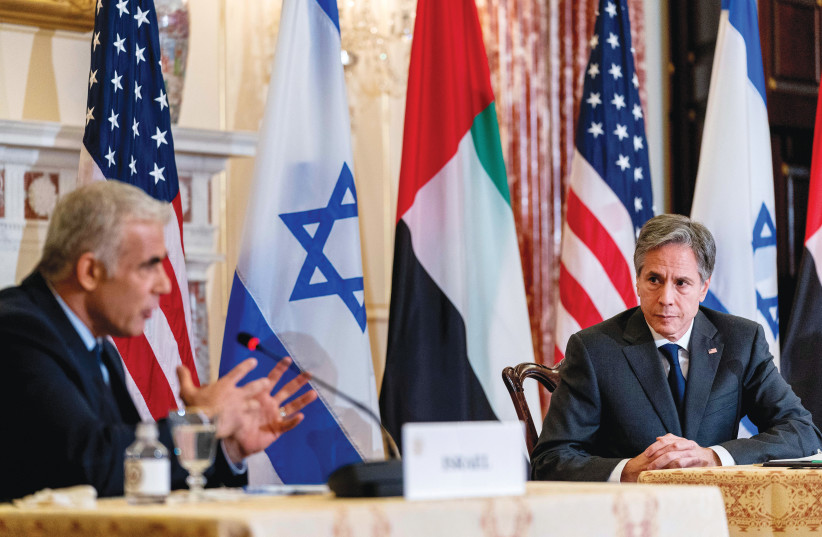US Secretary of State Antony Blinken on Wednesday cut short a brief trip to Southeast Asia aimed at revitalizing relations in a region where China's influence has grown after a COVID-19 case in the press corps accompanying him.
Blinken had been due to hold meetings in Thailand on Thursday but informed his Thai counterpart he would return to Washington to mitigate infection risks "out of an abundance of caution," a State Department spokesperson said.
Blinken and senior officials tested negative on Wednesday in Kuala Lumpur, Malaysia, where the journalist tested positive.
The trip to Southeast Asia was Blinken's first since President Joe Biden took office in January.
The Biden administration has sought to shore up ties with a region that had become uncertain about US commitment during a period of perceived neglect under Biden's predecessor, Donald Trump.

China expanded its influence in Southeast Asia, pushing investment and trade integration, at a time when Trump had withdrawn from a US-inspired Pacific trade pact that sought to challenge Beijing's economic clout.
In an address at an Indonesian university on Tuesday, Blinken laid out a strategy of boosting US infrastructure investment in the Indo-Pacific region and strengthening supply chains, while advancing treaty alliances and expanding defense and intelligence cooperation with other countries.
The speech took a swipe at the conduct of Chinese companies and "aggressive actions" by Beijing, which he said the region had grown increasingly concerned about. China's foreign ministry said Blinken was "drawing ideological lines."
Blinken and his senior staff have tested negative for coronavirus at each leg of their tour. It started in Britain and included a stop in Dubai, as well as in Indonesia and Malaysia, two key members, like Thailand, of the 10-nation Association of Southeast Asian Nations (ASEAN).
In a carefully crafted statement on Wednesday, State Department spokesman Ned Price said "Blinken and his senior staff" tested negative, but did not comment on all of those traveling on the plane with him.
Blinken gave a joint news conference on Wednesday with Malaysian Foreign Minister Saifuddin Abdullah and also met Prime Minister Ismail Sabri Yaakob.
Malaysia's foreign ministry said the individual who tested positive had been immediately quarantined and had not participated in Blinken's program in Kuala Lumpur.
Murray Hiebert, a Southeast Asia expert with Washington's Center for Strategic and International Studies think tank, said the cancellation was a disappointment for Thailand. But he said the fact Blinken had mentioned the country in his speech showed upper levels of the Biden administration recognized its importance in the region and to the United States.
"Blinken's visit was clearly a major milestone in ASEAN and showed Biden is paying attention and plans to find ways to engage Southeast Asia," he said.
This included plans for a US-ASEAN summit next year revealed during the trip, although Hiebert said there would be disappointment that Blinken's speech included few details about a framework for economic engagement with the region that Biden's team had been talking about since January.
